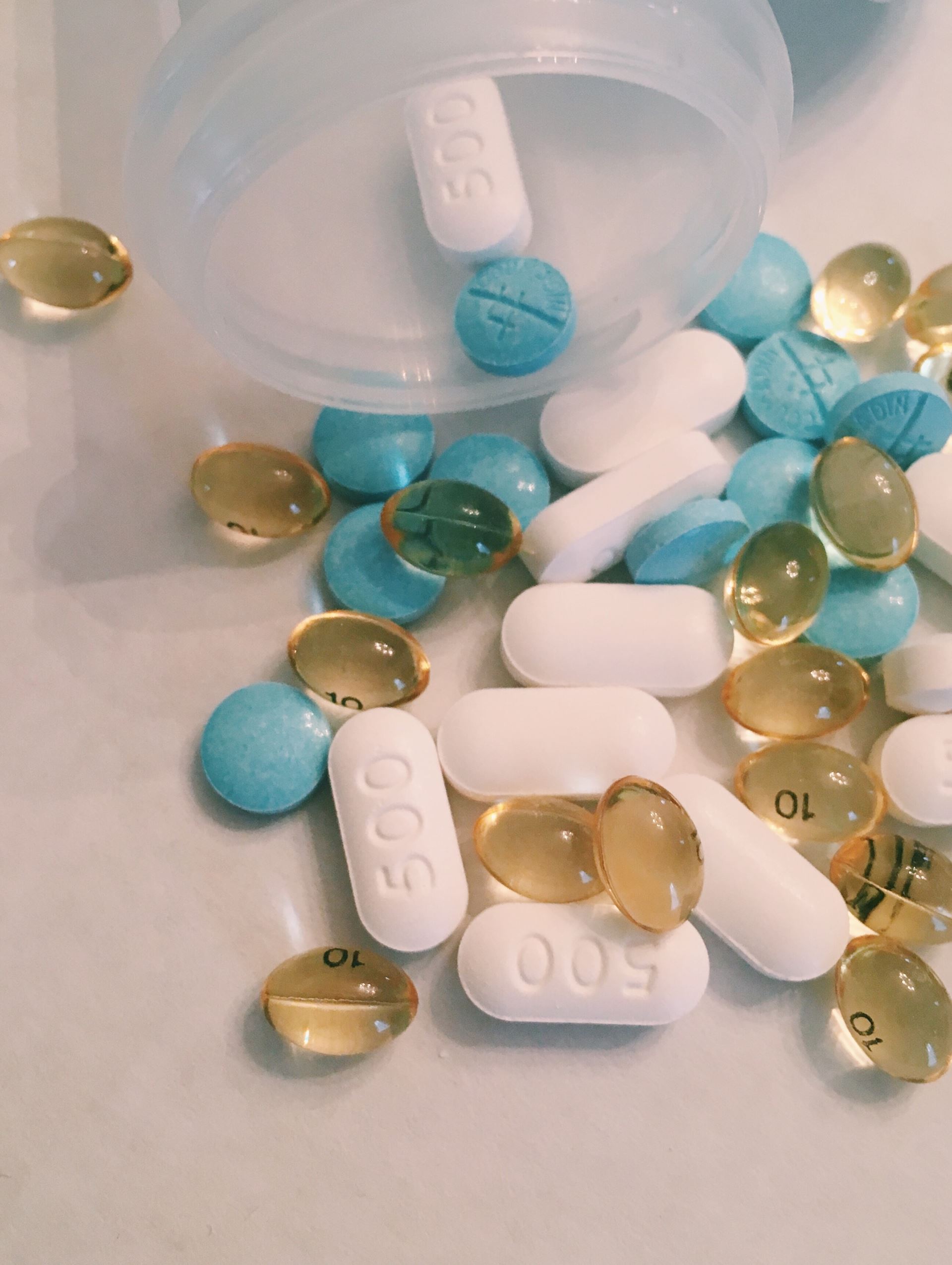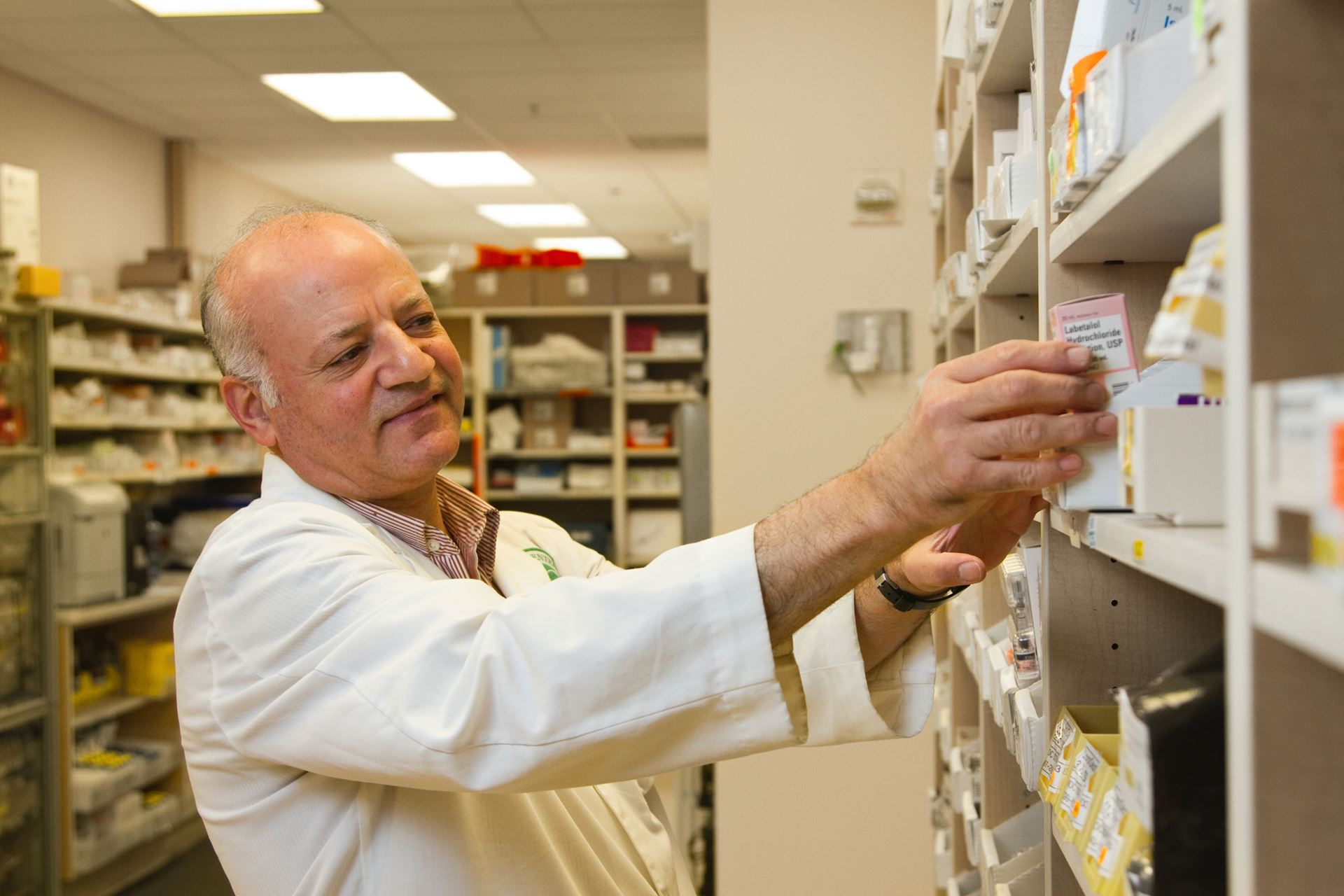Prescriptions
Non-urgent advice: Ordering Repeat Prescriptions Online
Non-urgent advice: Ordering Repeat Prescriptions Online
Non-urgent advice: Prescribing Hub
All medication requests for patient’s registered with Tyntesfield Medical Group are processed by the Prescribing Hub based at Brockway Medical Centre. The Prescribing Hub is staffed by a team of highly trained prescription clerks between 9am and 5pm from Monday to Friday.
The Prescribing Hub can be contacted directly via your normal Surgery telephone number, selecting option ‘4’ for prescriptions. Alternatively, the direct telephone number for the Prescribing Hub is 01275 465119, this number is open from 11am - 5pm Monday to Friday. Please note this number is for prescription queries or problems only, the Prescribing Hub will not routinely accept requests for medication via this telephone number - please see 'How to order Medication' section below for more details on how to request medication.
Enquiries and prescription requests can also be sent via email directly to the Prescribing Hub at tyntesfield.prescribing@nhs.net. Please send one email per patient.
Non-urgent advice: How to order Medication
There are several ways that medication can be ordered from the Surgery:
Preferred routes for ordering prescriptions (These ensure there is a clear audit trail and we can turnaround your prescription request in a more timely manner.)
- NHS App - The quickest and easiest way to get your medication is to sign up to the NHS App which is available in the App store (Apple or Android). It’s easy to use and you can order medication quickly and see when it has been approved by a GP. For more information and instructions on setting up the NHS App go to nhs.uk/nhsapp. The NHS App also allows you to obtain an NHS COVID pass, obtain confirmation of the dates of your COVID vaccinations, obtain confirmation of upcoming appointments, some details of your GP health care record such as blood test results, other immunisations and medications. This ensures there is a clear audit trail and we can turnaround your prescription request in a timelier manner.
- Online via Patient Access – Patient Access is an NHS service which allows you to book appointments and order medication online. You will need to register for this service in person at the Surgery with some photo ID (passport or driving licence).
Other routes for ordering prescriptions
- Via email directly to the Prescribing Hub at tyntesfield.prescribing@nhs.net – please provide your name, date of birth, address and specify which medication you are requesting and where you would like your prescription to be sent/left for you to collect. Please do not use this method for urgent requests.
- In person at the Surgery – you can either drop in your completed prescription counterfoil (the right-hand side of your prescription) or pick up a prescription ordering slip from the reception desk.
- Through your nominated Pharmacy – please discuss this with your pharmacy team. Please note this request can take up to 7 working days to reach us in the prescription hub.

Non-urgent advice: What is a Repeat Prescription?
Repeat prescriptions are medications which appear on the right hand side of your prescription which your Doctor would like you to continue on a regular basis. You are responsible for ordering your regular medication before you run out, this will not be done automatically by the Surgery. Please see ‘How to order medication for further details on how to request prescriptions for medication from the Surgery.
When a medication is newly commenced, it will often be done as an ‘acute’ prescription. If it is to be continued long-term, it will not normally appear on your list of repeat medication until after a review by a Doctor or Nurse or until the Doctor is satisfied that the treatment is appropriate to continue.
Non-urgent advice: Prescribing Policy
All prescriptions requests have to be approved by a Doctor. This can take a little time as the doctors have other tasks to do in the surgery. As a consequence the prescribing hub will require 4 working days to process all prescription requests.
There is currently a nationwide NHS campaign to tackle wasted medicines – details of which can be found on www.medicinewaste.com. It is estimated that as much as £300 million is wasted every year on unused or partially used medication. Wasted or unused medicine is a serious and growing problem within the NHS that we can all help tackle.
In order to ensure the careful monitoring of medicines and to help support this campaign, the Practice will only routinely issue medication that is due within the next 14 days. If you need your repeat medication earlier than usual for example, for a holiday, please specify this within your repeat prescription request.
Prescribing requests for extended trips abroad
If a person is going to be abroad for more than three months, we are only able to supply a prescription for up to 3 months to enable sufficient medication for you to get to your destination and find an alternative supply of medication. This is in line with NHS guidance SI04E0048_COVER (legislation.gov.uk).
Patients are responsible for ensuring that any drugs they take into a country confirm to local laws. It is the patient’s responsibility to research the availability of their medications in the country of travel, you can contact the manufacturer (details in the leaflet/PIL) in the box of medication. Some UK prescription only medicines can be purchased without a prescription from pharmacies in some countries.
Urgent advice: Urgent Prescription Requests
Tyntesfield Medical Group receives a significant number of requests for urgent repeat medication. Whilst these requests are usually valid and important, these immediate requests can put undue pressure on prescribers, causing delays in the care of symptomatic patients who are in urgent clinical need.
If you require medicine urgently (i.e. within 48 hours) please contact the prescription team directly on 01275 465119 (lines open from 11:00-17:00) to arrange this, please do not order via the normal routes listed above.
Urgent prescription requests will be available after 4pm from your usual pharmacy or will be sent to a late opening pharmacy of your choice.
Non-urgent advice: Local Pharmacies
Boots, 29-30 Somerset Square, Nailsea, BS48 1RQ. 01275 856 855
Day Lewis, 82B High Street, Nailsea, BS48 1AS. 01275 852516
Cohens, 27 Weston Road, Long Ashton, BS41 9AA. 01275 392289
Cohens, 1 West Town Road, Backwell, BS48 3HA. 01275 462386
Day Lewis, Tower House Medical Centre, Stock Way South, Nailsea, BS48 2XX. 01275 855109

Non-urgent advice: Electronic Prescription Service (EPS)
The Electronic Prescription Service (EPS) is an NHS service that allows us to send your prescriptions directly to any pharmacy of your choice in England. This paper-free prescription service means that you do not have to come into the surgery to collect your prescription. Prescriptions will be sent directly from the Practice to your nominated Pharmacy. If you are on holiday or working away, we can also send a “one-off” prescription electronically to a different pharmacy in England.
The progress and whereabouts of your prescription can also be tracked by the Practice staff, reducing the risk of missing or lost prescriptions.
EPS is a secure and confidential service. Your electronic prescription will only be seen by the same people that can already see your current paper prescriptions (GP practices, pharmacies and NHS prescription payment and fraud agencies).
We encourage all patients to register for this free service. If you would like your prescriptions to be sent electronically please contact the Prescribing Hub to inform them of your nominated pharmacy. You can also change your nominated pharmacy at any time by contacting the Prescribing Hub directly.
Non-urgent advice: Prescription Synchronisation
If you would like your tablets/medication synchronised, please collect a ‘Synchronisation Form’ from reception at any of the surgeries or click here to download the form online. When completed, please either return to the surgery or email the form to tyntesfield.prescribing@nhs.net and the Prescribing team will action.
Non-urgent advice: NHS England guidance on minor ailments
The NHS currently spends around £136 million a year on prescriptions for medicines that can be bought from a pharmacy or supermarket, such as paracetamol. By reducing the amount it spends on over-the-counter (OTC) medicines, the NHS can give priority to treatments for people with serious conditions, such as cancer, diabetes and mental health problems.
Generally, you will not be able to get a prescription for OTC medicines for a range of minor health conditions. Instead, OTC medicines are available to buy in a pharmacy or supermarket. The team of health professionals at your local pharmacy can offer help and clinical advice to manage minor health concerns. If your symptoms suggest it's more serious, they'll ensure you get the care you need. You can buy OTC medicines for any of these conditions:
|
Acute sore throat |
Minor burns and scalds |
Travel sickness |
|
Mild cystitis |
Coughs and colds |
Haemorrhoids |
|
Dry Skin |
Cradle cap |
Minor pain or fever |
|
Dandruff |
Hay fever |
Mild acne |
|
Dry eyes |
Mouth ulcers |
Oral Thrush |
|
Nappy rash |
Infrequent cold sores |
Indigestion and heartburn |
|
Sunburn or sun protection |
Insect bites and stings |
Diarrhoea (adults) |
|
Infrequent constipation |
Head lice |
Earwax |
|
Threadworms |
Conjunctivitis |
Ringworm or athletes foot |
Tyntesfield Medical Group will generally no longer provide treatment on prescription for these minor ailments listed above, even if you are entitled to free prescriptions. You may still be prescribed a medicine for a condition on the list if:
- You need treatment for a long-term condition, for example regular pain relief
- You need treatment for more complex forms of minor illnesses, for example migraines that are very bad and where OTC medicines do not work;
- You need an OTC medicine to treat a side effect of a prescription medicine or symptom of another illness, such as constipation when taking certain painkillers;
- The medicine has a licence that does not allow the product to be sold to certain groups of patients. This could include babies, children or women who are pregnant or breastfeeding;
- The person prescribing thinks that a patient cannot treat themselves
Prescribers will generally no longer prescribe probiotics, some vitamins or minerals. You can get these from eating a healthy, varied and balanced diet, or buy them at your pharmacy or supermarket.
Non-urgent advice: Private prescriptions
Patients may choose to see a private specialist who is entitled to receive self- referrals from patients. Some specialists insist on a GP referral first, in which case, provided the GP agrees that a referral is necessary, they can arrange an open referral letter. Patients can choose their own private specialist, however we would advise patients to select someone who is appropriately trained and regulated with the ability to arrange any necessary tests privately and arrange any appropriate private prescriptions for you.
GPs will not necessarily be able to take over the prescribing of any privately recommended medications so your private specialist will need to be responsible for this. Doctors must be satisfied that the prescription is needed, appropriate for the patient and within the limits of their competence before they consider taking over the responsibility.
If general practices receive requests from private providers to arrange tests or investigations, it is important to note that complying with such requests - regardless of the GP’s management and treatment of the patient - is outside the scope of NHS primary medical services.
Sometimes GPs are asked to prescribe medications which are usually specialist-only medication by entering into ‘shared care’ between the patient, GP and specialist. All shared care arrangements are voluntary, so even where agreements are in place, practices can decline shared care requests on clinical and capacity grounds. The responsibility for the patient’s care and ongoing prescribing then remains the responsibility of the private provider.
For more information:
General practice responsibility in responding to private healthcare
Non-urgent advice: Prescription Fees
Help with NHS costs
In England, around 90% of prescription items are dispensed free. This includes exemptions from charging for those on low incomes, such as:
- Those on specific benefits or through the NHS Low Income Scheme
- Those who are age exempt
- Those with certain medical conditions
- More information is available at NHS Choices

Non-urgent advice: NHS Charges
These charges apply in England only. In Northern Ireland, Scotland and Wales prescriptions are free of charge.
- Prescription (per item): £9.65
- 12-month prepayment certificate (PPC): £111.60
- 3-month PPC: £31.25
If you will have to pay for four or more prescription items in three months or more than 14 items in 12 months, you may find it cheaper to buy a PPC.
- Telephone advice and order line 0845 850 0030
- General Public - Buy or Renew a PPC On-line
There is further information about prescription exemptions and fees on the NHS website.
Non-urgent advice: Diazepam for Fear of Flying
At Tyntesfield Medical Group, we will not routinely prescribe Diazepam for patients who wish to use this for a fear of flying
There are a number of reasons why prescribing drugs like Diazepam are not safe or recommended:
- Diazepam is a sedative which means it can make you sleepy and more relaxed. If there was an emergency during the flight this could impair your ability to concentrate, follow instructions, or react to the situation. This could seriously affect your safety and the safety of your fellow passengers.
- The sedative effects of these drugs can affect breathing and cause low oxygen levels which could become a risk with the lower circulating oxygen levels on an aeroplane, especially for patients with breathing problems or when combined with alcohol.
- Sedative drugs can make you fall asleep. However, when you sleep it is an unnatural non-REM sleep. This means your movements during sleep are reduced and this can place you at an increased risk of developing blood clots (DVT). These blood clots are very dangerous and can even prove fatal. This risk further increases if your flight is longer than four hours.
- Although most people find drugs like Diazepam sedating, a small proportion experiences the opposite effect and can become aggressive, confused or agitated. These medicines can also cause disinhibition and make you behave in ways you normally wouldn’t. This could impact on your safety and the safety of your fellow passengers.
- National prescribing guidelines followed by doctors also don’t allow the use of benzodiazepines in cases or phobia like fear of flying. Any doctor prescribing diazepam for a fear of flying would therefore be taking a significant legal risk as this goes against these guidelines.
- Benzodiazepines are only licensed for short-term use in a crisis in generalised anxiety. If this is the problem you suffer with, you should seek proper care and support for your mental health, and it would not be advisable to go on a flight.
- In several countries, diazepam and similar drugs are illegal. They would be confiscated, and you might find yourself in trouble with the police for being in control of an illegal substance.
- Diazepam has a long half-life. This means it stays in your system for a significant time and you may fail random drug testing if you are subjected to such testing as is required in some jobs.
We appreciate a fear of flying is very real and very frightening. A much better approach is to tackle this properly by using self-help resources or considering a Fear of Flying Course, which is run by several airlines.
These courses are far more effective than diazepam, they have none of the undesirable effects and the positive effects of the courses continue after the courses have been completed.
Self-help resources
Self-help - Phobias - NHS (www.nhs.uk)
Fear of Flying Courses
EasyJet
Tel: 0203 813 1644
British Airways
http://flyingwithconfidence.com/courses
Tel: 01252 793 250
Virgin Atlantic
https://flywith.virginatlantic.com/gb/en/wellbeing-and-health/flying-without-fear.html

Page created: 03 September 2020
